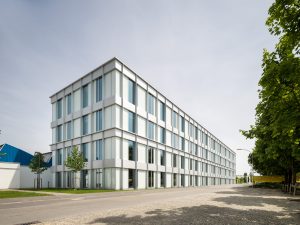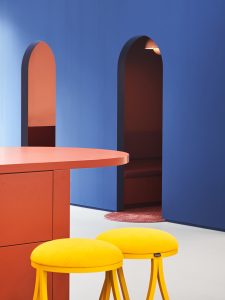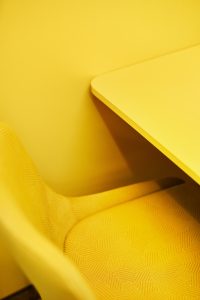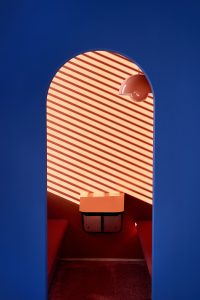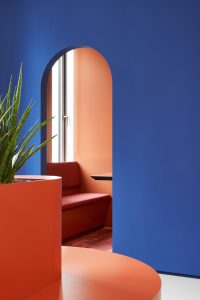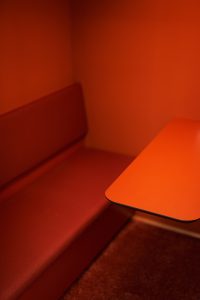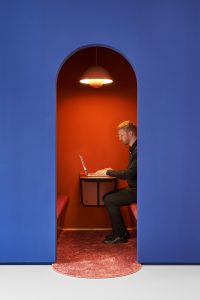Tradition transitioning to New Work
Uhlmann
New Work, Laupheim, 2021
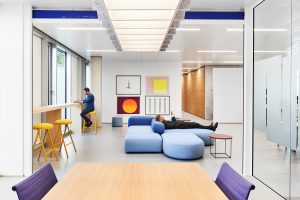
Mechanical engineering company Uhlmann commissioned Kinzo to design the interiors of their office building, designed by Barkow Leibinger. The goal was to modernize the company´s headquarters and create a place of identification – for employees, people from the region and business partners.
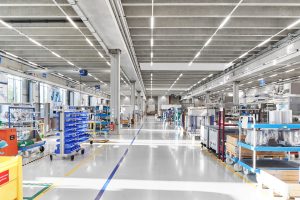
Uhlmann is a manufacturer of pharmaceutical packaging machines and the world market leader in its sector. 1600 employees work at the Uhlmann Campus in Laupheim, Swabia.
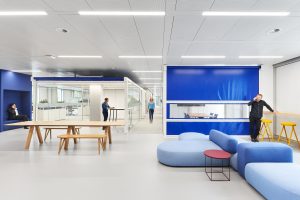
Inspired by the production hall
A special color palette enables the translation of the company´s personality into space: bright, strong tones pick up on the colorful markings of the old production hall. This creates recognition value, reduces the sense of distance and conveys a feeling of togetherness – as well as – and especially – across team boundaries.
A tailor-made design element is the meeting garages, which were especially designed for Uhlmann. At the push of a button, tarpaulins of colored PVC can be lowered to create spontaneous meeting rooms. The garages take up the motif of the production hall and create contrast in the classic office context.
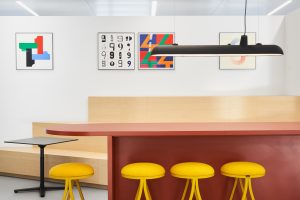
A special feature of the interior design is the art collection curated by Berlin gallery owner Sassa Trülzsch, which sets the tone in the new offices. Trülzsch was commissioned by Tobias Uhlmann, Chairman of the Supervisory Board, to put together a selection of artworks on the themes of craftsmanship, industry and the region. The curation is the result of a special collaboration with the Ulm School of Design, which has its origins in the Bauhaus movement. It completes the rooms and sets special and individual accents, creating a unique recognition value for employees and visitors
Photos by Philip Kottlorz
| Client | Uhlmann |
| Year | 2021 |
| Location | Laupheim |
| GFA | 3.600 sqm |
| Architecture | Barkow Leibinger |
